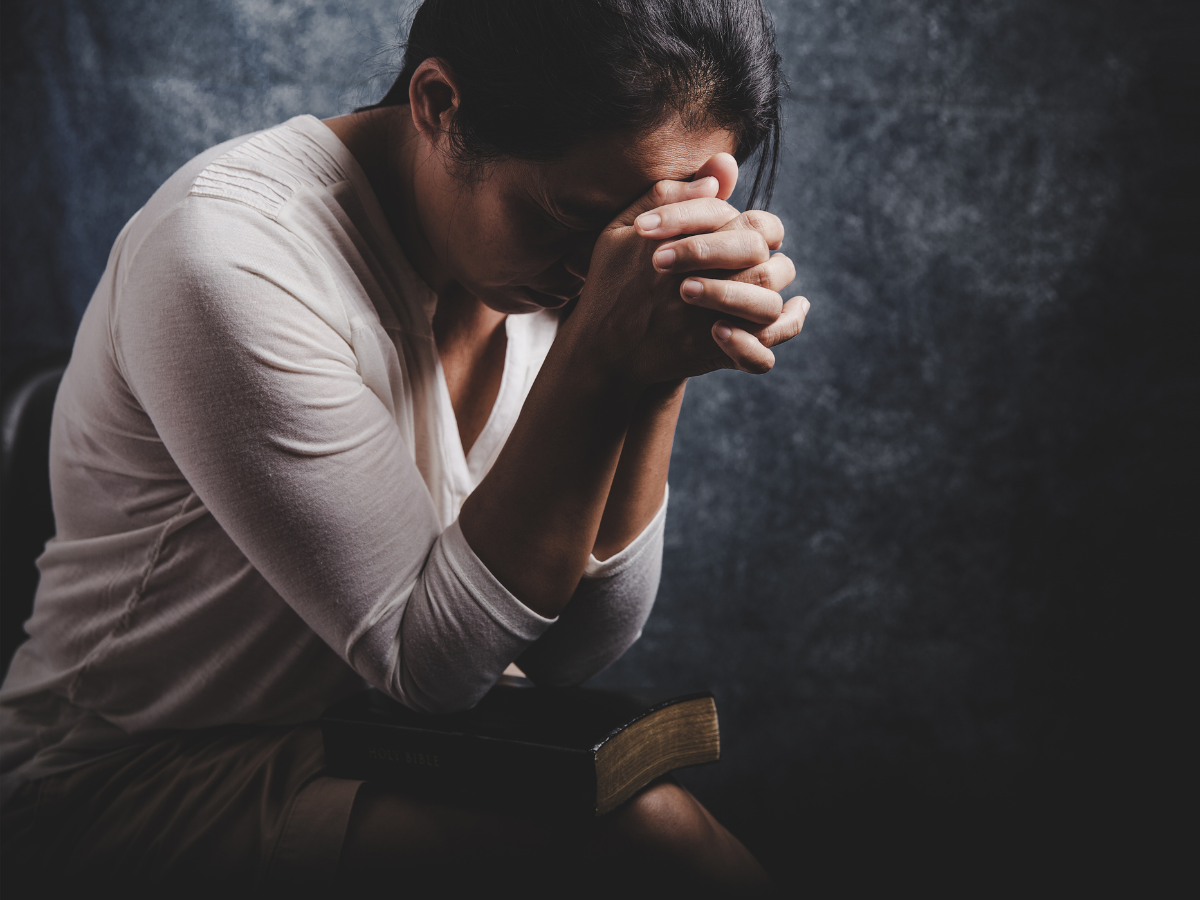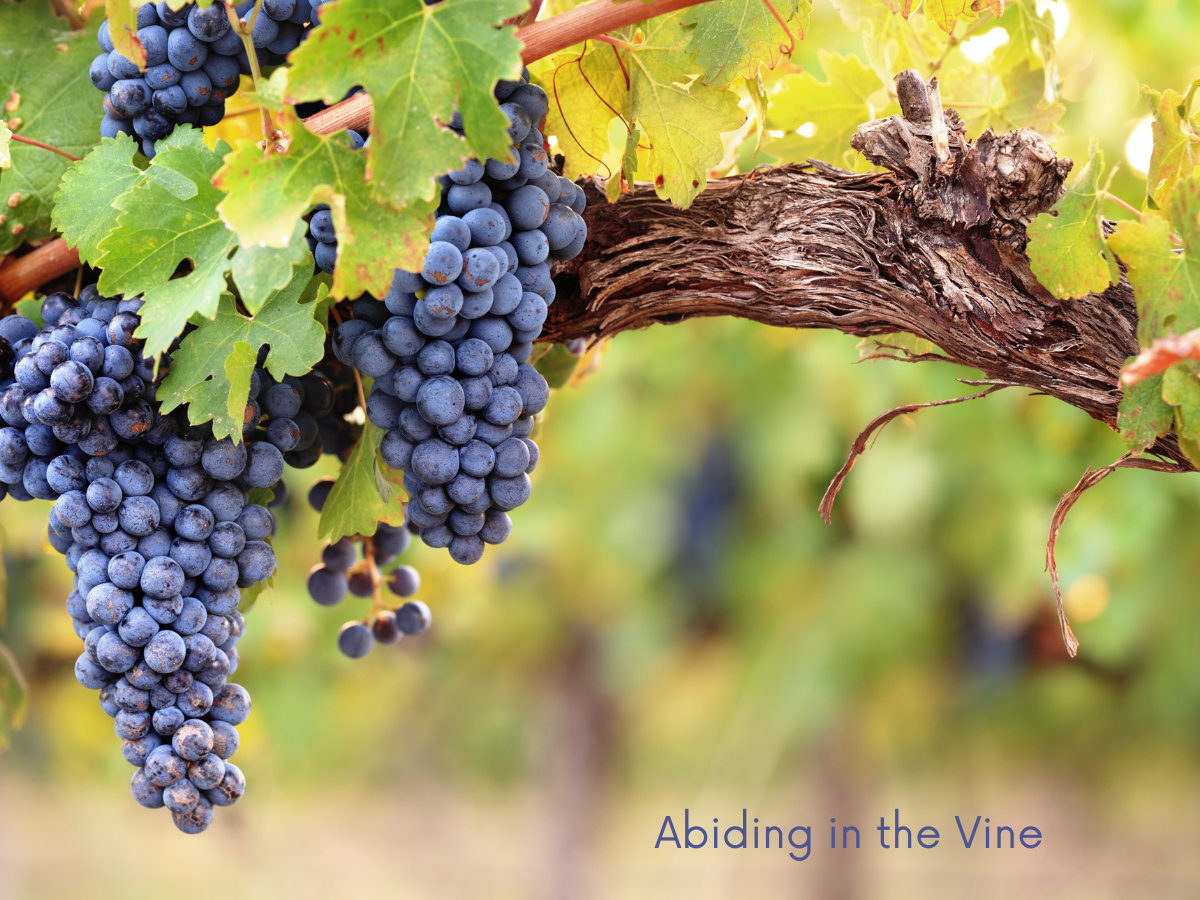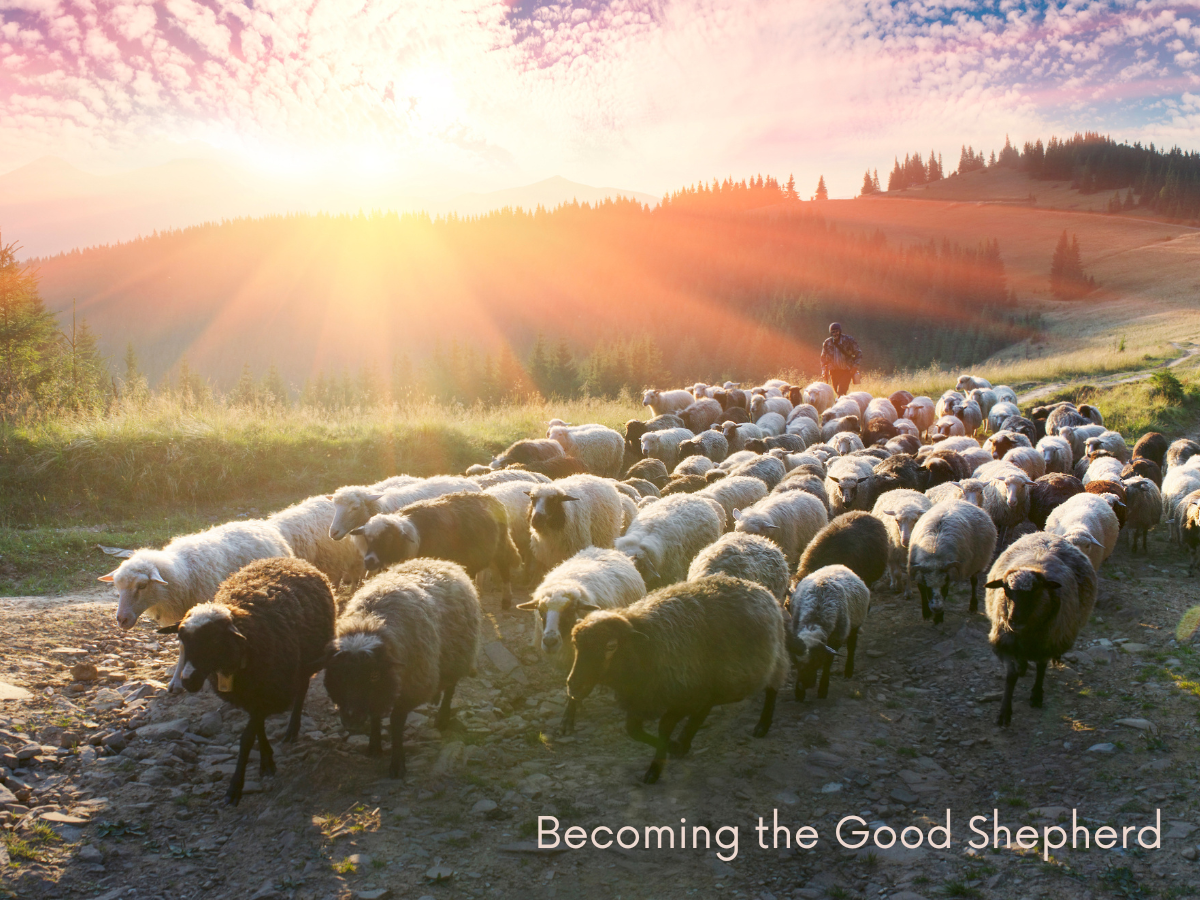Sunday, May 5, 2024 - John 15:9-17 Also Acts 10:44-48, Psalm 98, 1 John 5:1-6 It’s not fun to feel…
Advent: Longing for God
The First Sunday of Advent, December 3, 2023
Today is the first Sunday of Advent. Not every Christian denomination celebrates Advent, but the Lutheran Church understands both Advent before Christmas and Lent and the Passion Week before Easter as necessary steps that we shouldn’t skip over.
One of my favorite memories from past Christmas seasons is when my childhood church would have their annual potluck dinner where we assembled our own Advent wreaths. Not that we didn’t have a lot of other potluck dinner! We were Lutheran, after all. Every family had their own frame, which consisted of a square base, with a candlestick holder at each corner and a wire that went around the whole thing. The church would get a huge delivery of evergreen branches and I’d run up to the pile and pull out a stack to bring back to our table. Everyone was busy weaving pine boughs in and out around the wire until we had a finished wreath to take home. I think I remember us lighting ours at Sunday dinner each week.
You might have wondered why we light candles on a wreath at this time of year. Well, this seems to be a tradition that began in Germany in the 19th century. There a Lutheran theologian named Johann Hinrich Wichern ran an orphanage. As you can well imagine, there Christmas was eagerly anticipated every year. Every day it seemed that children would ask Pastor Wichern when Christmas was coming. To help their waiting and their patience, he made the first Advent wreath in 1839.
Pastor Wichern’s wreath was a little bit different than ours. He took a large wooden carriage wheel and fastened candles to it. He used four large white candles for each of the Sundays and 19 small red candles for the other weekdays of Advent. Then he hung the wagon wheel from the ceiling of the prayer room and lit a candle each day of Advent. It was kind of like our Advent calendars, where we open little doors to reveal the date or maybe a piece of chocolate. The pastor’s wagon wheel helped the children count the days until Christmas. Eventually, Christians began to use evergreens for the wreath as a symbol of everlasting life in the midst of winter and death.
The word “Advent” comes from the Latin word “adventus” and means “coming.” But originally, Advent was not connected to Christmas. Christians began celebrating it in Spain and France in the 4th and 5th centuries as a season of preparation for baptism at the January feast of Epiphany. Epiphany recognizes the incarnation of God in the baby Jesus through the visit of the wise men or maji. And so new Christians would spend the 40 days of Advent leading up to Epiphany in penance, prayer, and fasting.
By the 6th century, Roman Christians connected Advent to the coming of Christ, but the “coming” they were more concerned about was Christ’s second coming in the clouds as the judge of the world. It wasn’t until the Middle Ages that Advent became a time of preparation for Jesus’ birth.
When I think of Advent, I think of longing or yearning, of waiting, and of hope. Our Old Testament reading today shows clearly the longing in Israel during the time of Isaiah. Israel had experienced exile, military defeats, death and destruction. We can easily miss the tone of desperation that’s under the surface of Isaiah’s words, but this reading is really just like a lament. It begins, “O that you would tear open the heavens and come down, so that the mountains would quake at your presence—”
When I read this text, I hear sentiments like: O God, why won’t you come?? And we want you to come in a big way to really show our enemies who’s boss, because we’ve been humiliated and that’s not fair. We’re suffering down here and you won’t do anything to help us! You’ve done miraculous things in the past, why have you forsaken us today? You hid yourself from us, and so we began to doubt you, and lost our way. Maybe if you had been more present, we wouldn’t have sinned, but now you seem to be so angry with us that you’ve let our enemies trample all over us. We’re dying down here and you don’t seem to care.
And like a typical lament, it ends with a reminder to God that we are your people, meaning that you have a covenant with us, you made a promise to us, and so you are bound to us, and therefore you must come and help us.
How many times have you felt abandoned by God? How many times has it seemed like this world is just too much to deal with – too much pain, too much sorrow, too much suffering?
A year and a half ago, my best friend, Laurel, lost her 34 year old son to a brain aneurysm out of nowhere. On Good Friday, no less. He had only gotten married to the love of his life a couple of years before, they had just had a baby, and only weeks before his death, they finally had the church ceremony they were denied during Covid. Tiernan went to Catholic mass every single morning on his way to work. He had turned his life around and was in love with his life, maybe for the first time. And then in the blink of an eye he was gone.
My friend Andy has a good friend who lost her son to an avalanche while snowboarding not long ago. I don’t know how parents deal with such nonsensical losses. How can they not cry out asking where was God in those moments?
I’m sure you’ve had losses too. We all have. Or maybe you’ve longed for something that never seems to happen. Maybe it’s recovery from an illness, maybe it’s the baby you could never conceive or bring to term. For my entire life, I’ve yearned for a soul mate, and my own family, so deeply that it has literally made my heart ache. I spent many years shaking my fist at the sky wondering why God seemed to be denying me the very things I wanted and needed most. I used to joke that God must have confused my file folder with someone other woman who actually wanted to be a nun, but honestly, it was no laughing matter for me.
We live in a world that is so full of fear, division, addiction, discord, and war. We struggle daily with choices that seem impossible to make. I can’t tell you how many times I’ve said to God, “Why won’t you show up?! Won’t you just show me what you want me to do?” Just like Israel, each one of us could be saying, “Stop hiding yourself, God. We need you! Can’t you fix this? You should fix this! Why won’t you come?”
Dietrich Bonhoeffer, a German pastor who was executed by the Nazis just days before liberation, said that “The celebration of Advent is possible only to those who are troubled in soul, who know themselves to be poor and imperfect, and who look forward to something greater to come.”
This longing for healing, for salvation, for wholeness, is the state of the church just as it was the situation for ancient Israel. Just like Israel, we are in exile, in a world gone mad, waiting, hoping, and praying for the Messiah. In what the New Testament calls these “last days,” God’s people are waiting for the return of Christ to consummate his eternal kingdom. And in the same way that Israel looked back to God’s great deeds of the past and forward in hope of relief, Christians look back to the birth of Jesus and look forward in anticipation to his return to free his people from the bondage of suffering.
In this light, the Advent hymn “O Come, O Come, Emmanuel” perfectly represents the church’s cry during the Advent season:
O come, O come, Emmanuel,
And ransom captive Israel,
That mourns in lonely exile here
Until the Son of God appears.
Rejoice! Rejoice!
Emmanuel shall come to thee, O Israel.
I was in a Zoom meeting with a group of people last Monday, and my friend Paul Nancarrow said something really wonderful about this season. He said that Advent is the readying for the fulfillment of all things in Christ. That behind the images we read in our texts, like those of Jesus coming in the clouds, lies the deep faith that all of our joy and all of our sorrow will one day be gathered up in God, and in God find their meaningful fulfillment. We live and breathe in the hope that both the beauty and all the suffering we’ve endured will one day be made part of something wonderful in God.
St. Paul tells us that Christ has been strengthened among us, that we are not lacking in any gift as we wait for God to weave all of this into a beautiful tapestry. He promises us that Christ has strengthened us to the end, and that God is faithful.
So what do we do while we wait and watch? We light our candles. We say our prayers. We hold space for each other in our longing, in our waiting, in our sorrow, and in our joy. We hold onto each other for dear life. We look for the small signs of God’s presence among us today – in those small moments of grace and love. And we wait for the light to come again.





This Post Has 0 Comments